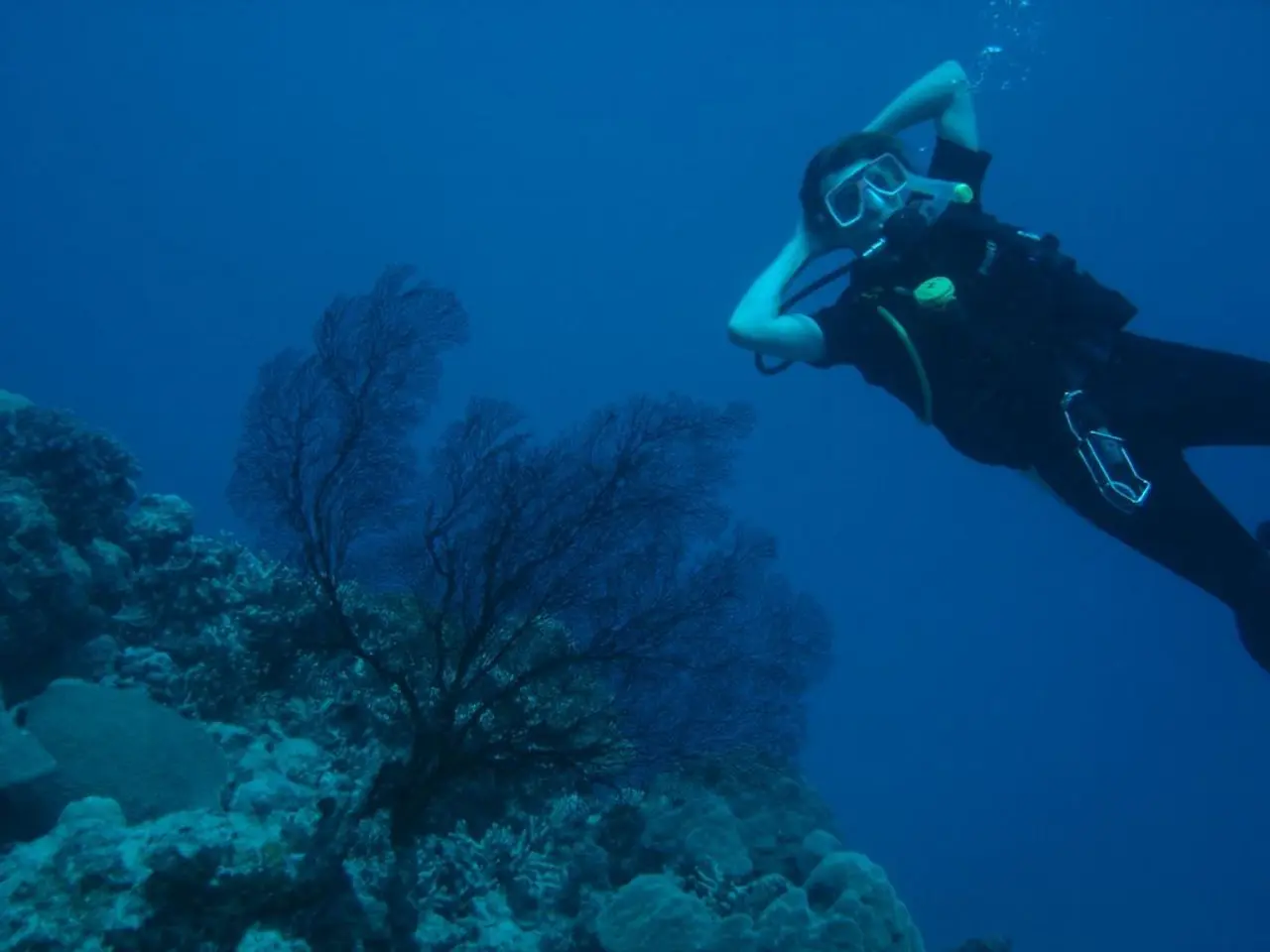Tragic weekend drownings: Nine and three-year-old children succumb to water incidents
Sun, Fun, and Tragedy: Summer Weekend Water Mishaps in Germany
The joy of summer weather and water activities came to a halt for several families this weekend, as overindulgence, carelessness, and insufficient preparation led to multiple drowning incidents across the country.
Unfortunate Deaths Nationwide
In incidents reminiscent of a cautionary tale, four lives were claimed by bathing accidents, two of them being innocent children. Numerous other individuals were lucky to escape dangerous situations, including a five-year-old boy in Berlin, who is now safe and sound thanks to the quick thinking of a DLRG lifeguard.
Heartbreaking Tragedies in Frankfurt and Cologne
In a chilling event, an nine-year-old girl was found lifeless in a swimming pool in Frankfurt am Main, despite the valiant efforts of rescue workers on site and a paramedic who attempted to resuscitate her. This tragic incident remains shrouded in mystery regarding the circumstances that led to her demise. Meanwhile, a three-year-old boy lost his life in a beach resort in Cologne, believed to have drowned.
Booze and Bad Judgment in Leverkusen
Incidents of alcohol-related carelessness on water bodies continued with the tragic death of a 40-year-old man in a lake in Leverkusen, who reportedly consumed alcohol with friends on a warm summer evening. His lifeless body was discovered the following morning by his concerned friends.
Under Threat on the Rhine
In Düsseldorf, rescue workers launched a frantic search for a missing man at the Paradiesstrand, a local bathing spot. Unfortunately, their efforts proved unsuccessful, and the investigation is ongoing. Meanwhile, a 94-year-old man lost his life in a bathing accident in the region of Hannover, the exact cause of which is still under investigation.
Picture a Safer Summer
Burnishing our memories of carefree summer fun, these heartbreaking incidents urge us to practice water safety and responsibility. Refrain from mixing alcohol with water activities and observe safety regulations, such as wearing appropriate gear and supervising children. By adopting these simple guidelines, we can take a step toward preventing future tragedies and ensuring a safe, enjoyable summer for all.
Insights: Causes of Fatal Water Accidents in Germany
Fatal water accidents in Germany arise from a variety of environmental factors, human errors, and equipment failure. By understanding these root causes, we can better shape our safety measures and prevention strategies.
- Drowning due to swimming in unsafe conditions can result from strong currents, cold water, lack of skills, and alcohol consumption.
- Boating accidents may stem from capsizing, collisions, failure to wear life jackets, operator inexperience, or negligence.
- Flood-related incidents, such as flash floods and stalled vehicles in floodwaters, can claim lives, particularly during heavy rainstorms.
- Ice-related accidents, common in colder months, occur due to thin ice and misjudgments about its safety.
- Water sports accidents frequently arise from engaging in risky activities or using malfunctioning equipment.
- Lack of supervision, poor signage, and inadequate lifeguard coverage in high-risk areas also contribute to water fatalities in Germany.
- In addition to the tragic summer water mishaps, it's crucial to recognize the various root causes contributing to fatal water accidents in Germany.
- By understanding these causes, we can develop well-rounded safety measures and prevention strategies.
- Swimming in unsafe conditions often results in drowning due to factors like strong currents, cold water, and lack of skills, sometimes exacerbated by alcohol consumption.
- Boating accidents can originate from capsizing, collisions, failure to wear life jackets, operator inexperience, or negligence.
- Flood-related incidents, like flash floods and stalled vehicles in floodwaters, can be deadly, especially during heavy rainstorms.
- In colder months, ice-related accidents occur due to thin ice and misjudgments about its safety.
- Water sports accidents are common, often resulting from risky activities or malfunctioning equipment.
- Lack of supervision, poor signage, and inadequate lifeguard coverage in high-risk areas also contribute to water fatalities in the country.
- Health and wellness in the workplace can reduce the risk of accidents like these, considering the impact of medical conditions and chronic diseases on an individual's ability to recognize danger.
- Scientific research in environmental science can identify the consequences of climate change on the safety of water bodies, helping us prepare for potentially dangerous scenarios.
- Fitness and exercise are essential for maintaining the physical strength and endurance needed to navigate hazardous water conditions.
- Mental health plays a crucial role in decision-making, as stress, anxiety, and depression can impact each individual's perception of danger.
- Aging presents unique challenges for water safety, as older adults may have reduced mobility, cognition, and overall resilience.
- Women's health encompasses concerns ranging from reproductive health to skin conditions, all of which can impact one's ability to engage in water activities safely.
- Men's health, too, needs attention in this context, as it includes issues like prostate health and testicular cancer, which can affect an individual's ability to swim or participate in water sports.
- Parenting involves educating children about water safety and ensuring proper supervision during water activities.
- Weight management is essential, as excess weight can make swimming more challenging and increase the risk of drowning.
- Cardiovascular health is critical for the heart's ability to pump blood efficiently, which in turn affects an individual's swimming endurance and ability to cope with emergencies.
- The manufacturing industry can contribute to water safety by producing and maintaining reliable safety equipment like life jackets and safety gear.
- Energy consumption, too, is a factor in water safety, as overexploitation of resources can lead to polluted water bodies and poor environmental conditions for water activities.
- Environmental science plays a crucial role in understanding the environmental factors impacting water safety, such as toxins and pollutants that affect the overall health of water bodies.
- Finance, on the other hand, can help fund infrastructure projects for proper signage, lifeguard stations, and improved facilities to ensure water safety.
- Neurological disorders can impact an individual's ability to interpret danger and respond appropriately, increasing the risk of water mishaps.
- Venture capital investments in innovation for therapies and treatments could lead to advancements in water safety-related technologies.
- The retail industry can promote responsible water activities by selling appropriate safety gear and educating consumers about water safety.
- Entrepreneurship and leadership advocate for proactive, innovative solutions to improve water safety and prevent accidents like those mentioned earlier.
- Diversity and inclusion in leadership roles help to address underrepresented groups' specific needs in water safety and promote universal access.
- Focusing on small-business growth in the health and wellness industry can help create a more robust network of professionals dedicated to improving water safety and preventing tragedies.








